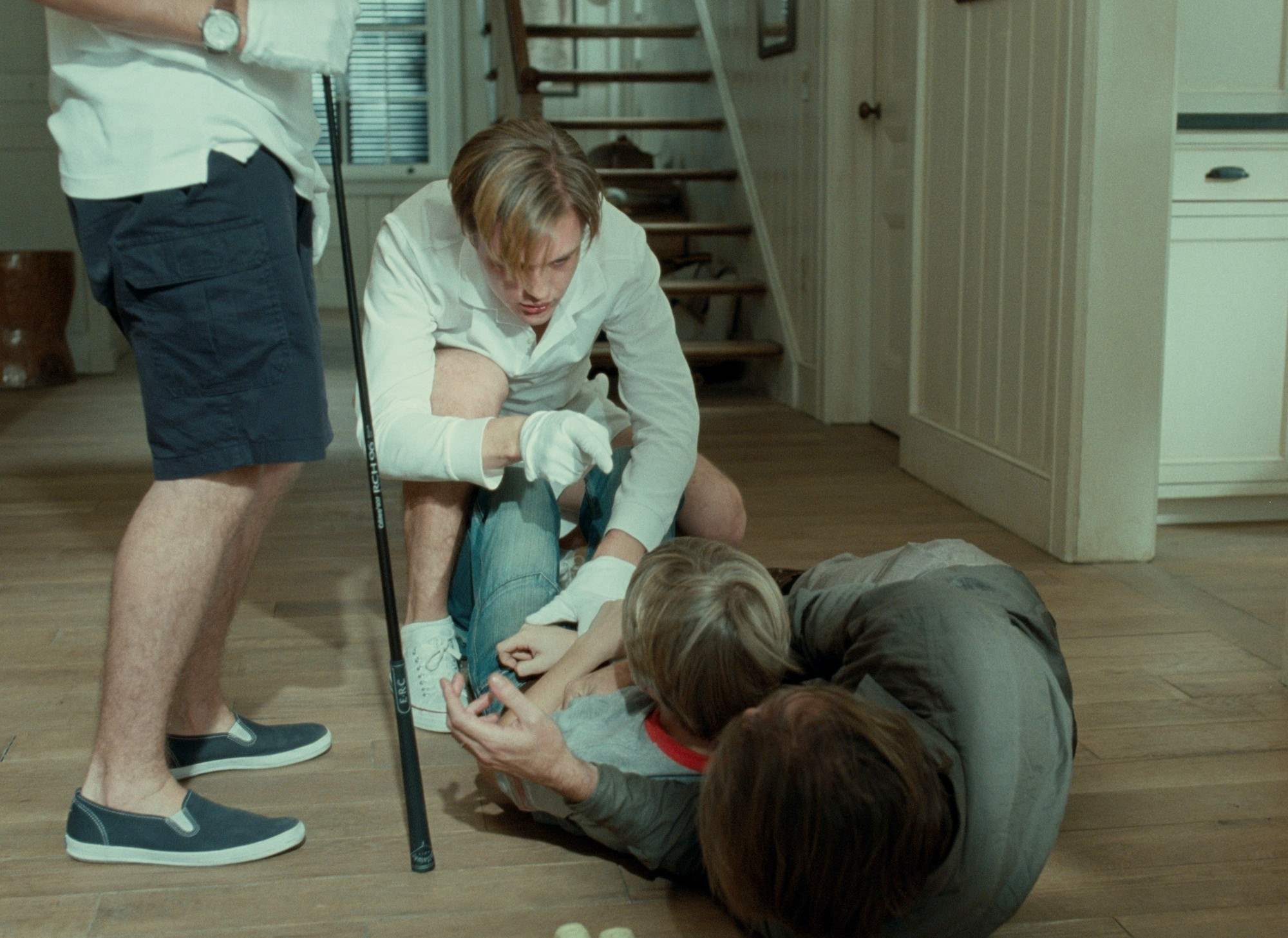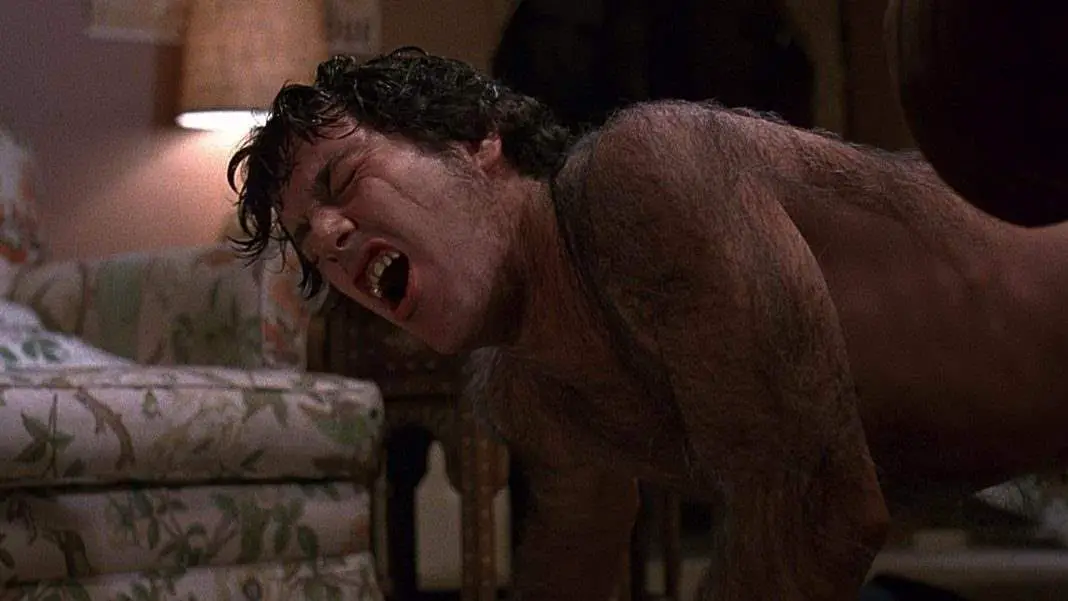It seems strange to say that the American remake of anything tops the original, and in most cases it definitely isn’t true. It’s not even a great idea for films to be remade for an American audience in the first place. The idea of it seems to reinforce xenophobia and a refusal to adapt to and take an interest in other cultures. On top of that, it’s pretty lazy movie making. But there are rare instances, almost anomalies, like Funny Games where the idea just works.
The American Funny Games still retains its original director, Michael Haneke and that’s really what makes the difference. The Austrian version is terrific, and with the 2007 remake, Haneke was able to fix any minor flaws with it and really deliver something even more impressive than what he had done the first time. In some ways, though, it’s almost shocking that the remake has any value at all. After all, the director made the film again almost shot for shot. It’s amazing that there’s any life or authenticity to it, but there is. Maybe even more than had been there the first time.
Haneke said that he initially envisioned Funny Games as an American movie, but couldn’t get it made in America. That’s not surprising, even the remake doesn’t seem like a film that could get made stateside with any kind of wide release. It’s somewhat of a commentary on horror, particularly the horror audience and the way American fans eat up and consume the genre. The more violent, the better, is the way it’s generally considered.

The killers, who give their names as everything from Peter and Paul to Tom and Jerry, have no motive. This is a series of random circumstances, and just another day for them. In fact, by the end, once they’ve done everything they’ve come to do, they simply move along down to the next house.
They’re driven to play games with their prey. For example, they don’t just kill the family’s dog, they make them search for it with a game of hot/cold. This manipulative element seems to talk directly to the audience of the genre, in particular the more modern age of horror where the killers are almost the protagonists and are usually completely in control of the situation.
 It’s a good thing, then, that the remake portrays Peter and Paul as totally unsympathetic. We are rooting for the family to get out of their situation. But at every turn, things get more and more hopeless. Maybe the most important scene comes when the wife, Anna, finally gets the upper hand and has a chance of escape. She shoots Peter and tries to run, almost getting away until Paul actually picks up the remote and rewinds the film to ensure she doesn’t get that chance.
It’s a good thing, then, that the remake portrays Peter and Paul as totally unsympathetic. We are rooting for the family to get out of their situation. But at every turn, things get more and more hopeless. Maybe the most important scene comes when the wife, Anna, finally gets the upper hand and has a chance of escape. She shoots Peter and tries to run, almost getting away until Paul actually picks up the remote and rewinds the film to ensure she doesn’t get that chance.
Despite all of the horrific things that happen in it, Funny Games is in some ways a black comedy. The reality is heightened, the whole thing is hopeless. And while it’s not necessarily intended to be funny, each scene is a joke with its own tagline. There’s an enormous sense of irony to both films. They’re called Funny Games, but they’re horrific.
They go on about fairness, but break the laws of physics to ensure that they win their game. Perhaps the biggest irony is that while there’s a self-awareness to Paul in that he believes he is making a movie and keeps things going for the sake of running time and audience expectations, the film itself is far from ordinary and actually results in a unique experience.
 The acting, in particular the character of Paul, is where the remake really shines over the original. While Arno Frisch certainly does good work as Paul, Michael Pitt is absolutely terrifying. There’s a subtle change to Peter and Paul, possibly solely in the acting, that ends up making the American version slightly smarter.
The acting, in particular the character of Paul, is where the remake really shines over the original. While Arno Frisch certainly does good work as Paul, Michael Pitt is absolutely terrifying. There’s a subtle change to Peter and Paul, possibly solely in the acting, that ends up making the American version slightly smarter.
Whereas they could have been any neighborhood kids in the 1997 version, in the remake they are snooty white yuppies. They are generally the last people to be considered for the kinds of crimes they are committing, yet Paul in particular takes absolute delight in what they’re doing. When Frisch turns and smiles at the camera in the original, he looks like an obnoxious kid just doing sick things to get his rocks off. Which is certainly scary, perhaps even in a more realistic way. But when Pitt turns and smiles at the camera, he looks like The Devil.
All of this results in a movie that is, at the very least, insanely uncomfortable to watch. Ironically, the one thing both versions really seem to have in common is their reception. While the original Funny Games has a slightly stronger audience from film purists, both are almost universally hated. Neither has a great response on Rotten Tomatoes, both have been called among the worst features of all time. People most certainly have a right to their opinion, but I think there’s a lot to both versions that many viewers tend to overlook. The idea is a contemplation on violence in the media, particularly in America, and the American version conveys this a little more clearly. Both are smart but, when it comes down to it, the remake is simply scarier.







